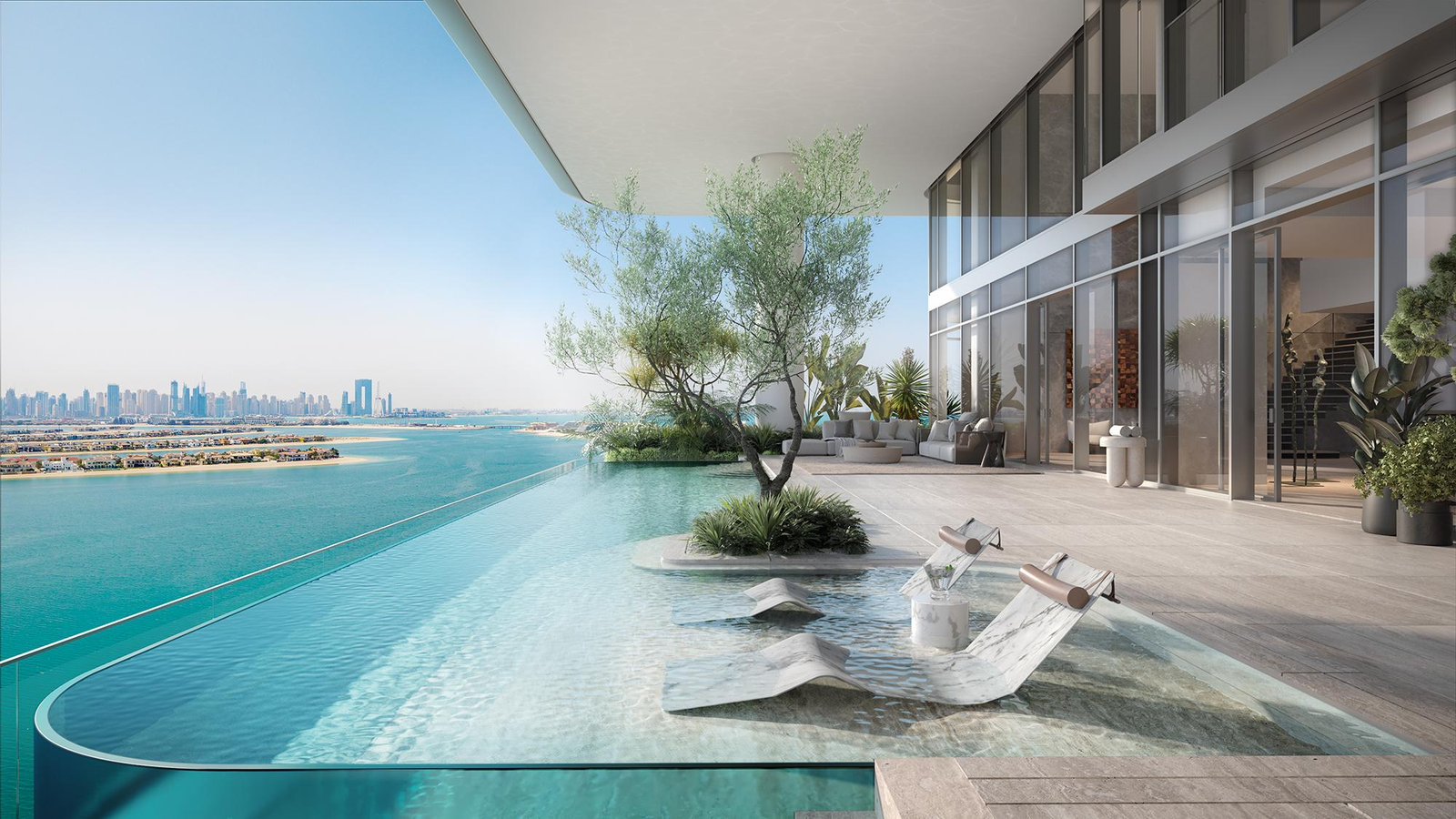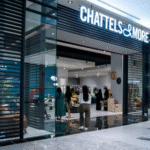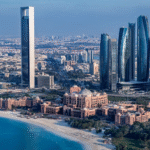Now Reading: Dubai Creek Harbour vs Dubai Hills: Where to Invest Now?
-
01
Dubai Creek Harbour vs Dubai Hills: Where to Invest Now?
Dubai Creek Harbour vs Dubai Hills: Where to Invest Now?
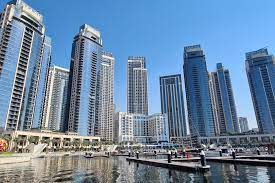
Table of Contents
Imagine standing on your balcony, gazing at a shimmering waterfront or lush green fairways, knowing your home is not just a sanctuary but a gateway to wealth. In 2025, Dubai’s real estate market is buzzing, with 96,000 transactions worth $87 billion in the first half, 58% driven by buyers from the UK, India, Russia, and China. Dubai Creek Harbour and Dubai Hills Estate, two of the city’s most coveted freehold areas, offer 100% ownership, a dirham pegged to the U.S. dollar, and no personal income tax, capital gains tax, or annual property taxes.
With 6-8% rental yields and 7-15% price appreciation, they outshine London (2-4%) and New York (2-3%). Properties over $545,000 qualify for a 10-year Golden Visa, while smaller units offer 2-year residency. Fueled by a 4% population surge and 25 million tourists, navigating transfer fees, VAT, and 2025 regulations is key. This guide compares Dubai Creek Harbour’s Dubai Creek Tower Residences and Dubai Hills’ Vida Residences Hillside to help first-time and seasoned investors decide where to plant their money for maximum growth and lifestyle.
Why Dubai Creek Harbour and Dubai Hills Shine
Located 15-30 minutes from Dubai International Airport via Sheikh Zayed Road or metro, these areas offer apartments, villas, and townhouses with vacancy rates at a low 2-3% compared to 7-10% globally. You keep 100% of rental income $48,000-$120,000 annually on a $800,000-$2 million property versus $26,400-$72,000 elsewhere after taxes. Zero capital gains tax saves $60,000-$200,000 on a $300,000-$1 million profit, and no annual property taxes save $8,000-$40,000 yearly, unlike London’s council tax (up to 2%) or New York’s property tax (1-2%).
Residential purchases dodge 5% VAT ($40,000-$100,000), and Golden Visa perks enhance residency appeal. Dubai Creek Harbour boasts waterfront views and the upcoming Blue Line metro (2029), while Dubai Hills offers family-friendly parks and a golf course. Both promise high growth, but their vibes and returns differ.
Investing here feels like choosing between two golden opportunities.
No Personal Income Tax: Rentals That Build Wealth
Both areas impose no personal income tax, letting you pocket every dirham of rental income, unlike the U.S. (up to 37%) or UK (up to 45%). A $800,000 Dubai Creek Harbour apartment yielding $48,000-$72,000 annually saves $17,760-$32,400 compared to taxed markets. A $2 million Dubai Hills villa yielding $80,000-$120,000 saves $36,000-$48,000.
Short-term rentals in Dubai Creek Harbour, boosted by 25 million tourists, require a DTCM license ($408-$816), increasing yields by 10-15% ($4,800-$10,800). Long-term leases in Dubai Hills, popular with families, need Ejari registration ($54-$136) for stability. Non-compliance risks fines up to $13,612, so proper licensing is essential.
Tax-free rentals feel like a steady stream of financial freedom.
Zero Capital Gains Tax: Profit Without Limits
Both areas offer zero capital gains tax, letting you keep 100% of sale profits. Selling a $800,000 Dubai Creek Harbour apartment for $1 million after 25% appreciation yields a $200,000 tax-free profit, saving $40,000-$56,000 compared to London (20-28%) or New York (20-37%).
A $2 million Dubai Hills villa sold for $2.5 million yields a $500,000 tax-free gain, saving $100,000-$140,000. Price growth in Dubai Creek Harbour hits 10-15% annually, driven by the iconic Creek Tower and Blue Line, while Dubai Hills sees 7-10%, fueled by family demand. A 4% Dubai Land Department (DLD) fee applies on resale ($32,000-$80,000), often split, but tax-free profits amplify returns.
Keeping every dirham feels like a financial victory.
No Annual Property Taxes: Save on Ownership
Unlike global markets where annual property taxes cost $8,000-$40,000 on a $800,000-$2 million property, both areas have none, easing ownership costs. Maintenance fees in Dubai Creek Harbour range from $10,000-$15,000, while Dubai Hills charges $8,000-$12,000 due to premium amenities like golf courses. A 5% municipality fee on rentals ($2,400-$6,000) applies, slightly higher in Dubai Hills. These costs are lower than London’s council tax ($16,000-$40,000) or New York’s property tax, making ownership more affordable.
No property taxes feel like a weight lifted from your investment.
VAT Rules: An Investor’s Advantage
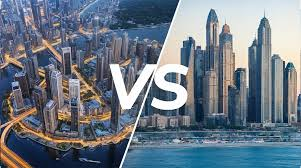
Residential purchases skip 5% VAT, saving $40,000-$100,000 on a $800,000-$2 million property, unlike commercial properties or the UK’s stamp duty (up to 12%, or $96,000-$240,000). Off-plan purchases, common in Dubai Creek Harbour, may incur 5% VAT on developer fees ($10,000-$40,000), recoverable via Federal Tax Authority (FTA) registration ($500-$1,000). Short-term rental operators in Dubai Creek Harbour must register for VAT if revenue exceeds $102,041, charging 5% but claiming credits on expenses like DTCM fees ($408-$816). A $800,000 apartment yielding $48,000-$72,000 incurs $2,400-$3,600 in VAT but allows $1,000-$2,000 in credits. Non-compliance risks fines up to $13,612, so meticulous records are key.
VAT exemptions feel like a friendly boost to your returns.
DLD Fees and Title Deeds: Securing Your Investment
The 4% DLD fee, typically split, is a key cost: $32,000 for a $800,000 Dubai Creek Harbour apartment or $80,000 for a $2 million Dubai Hills villa. Gift transfers to family or shareholders reduce DLD to 0.125%, saving $31,000-$77,500. For example, gifting a $2 million property cuts the DLD fee from $80,000 to $2,500. Title deed issuance costs $136-$272 and must be registered with the DLD.
Broker fees, typically 2% ($16,000-$40,000), may be waived for off-plan projects in Dubai Creek Harbour. Mortgage registration (0.25% of the loan, or $2,000 for a $800,000 loan) and valuation fees ($680-$1,360) apply for financed deals. The 2025 Oqood system ensures escrow compliance for off-plan purchases, protecting your funds.
Title deeds feel like the key to your Dubai dream.
Corporate Tax: A Business Buyer’s Note
The 9% corporate tax, introduced in 2023, applies to businesses with profits over $102,110. A company leasing a $800,000 Dubai Creek Harbour apartment yielding $48,000-$72,000 faces a 9% tax ($4,320-$6,480), reducing net income to $43,680-$65,520. A $2 million Dubai Hills villa yielding $80,000-$120,000 incurs $7,200-$10,800 in tax.
Qualified Free Zone Person (QFZP) status in areas like Dubai Multi Commodities Centre (DMCC) avoids this, saving $12,240-$30,600, with setup costs of $2,000-$5,000. Small business relief waives corporate tax for revenues under $816,000 until December 31, 2026. Individual ownership skips this tax entirely, ideal for most investors.
Corporate tax feels like a hurdle you can sidestep with strategy.
New Tax Rules for 2025
The Domestic Minimum Top-up Tax (DMTT), effective January 1, 2025, imposes a 15% tax on multinationals with revenues over €750 million ($793 million). Individual investors and smaller entities are unaffected, and QFZP status avoids DMTT, saving $12,240-$30,600. Cabinet Decision No. 34 refines Qualifying Investment Fund (QIF) rules, exempting corporate tax if real estate income is below 10%. A QIF earning $1 million, with $200,000 from rentals, faces 9% tax ($14,400) on 80% ($160,000). A July 2025 policy allows corporate tax deductions on fair market value depreciation, saving $6,545-$9,000 annually for a $1.5 million property revalued at $1.875 million.
New rules feel like a game with profitable moves.
Dubai Creek Harbour: Dubai Creek Tower Residences
Dubai Creek Tower Residences by Emaar ($800,000-$2 million), adjacent to the upcoming Blue Line metro, offer apartments with 6-8% rental yields and 10-15% price growth, driven by waterfront views and the iconic Creek Tower. A $800,000 apartment yields $48,000-$72,000 tax-free, saving $17,760-$32,400. Selling for $1 million yields a $200,000 tax-free profit, saving $40,000-$56,000.
No property taxes save $8,000-$16,000, and VAT exemption saves $40,000. Maintenance fees are $10,000-$15,000, with a 5% municipality fee ($2,400-$3,600). QFZP saves $12,240-$19,440. U.S. investors deduct depreciation ($14,545-$36,364), saving up to $12,727. With 25 million tourists and smart features like AI-driven home management, short-term rentals thrive. The Blue Line’s 2029 completion could boost values by 20%.
Dubai Creek Harbour feels like a futuristic waterfront adventure.
Dubai Hills Estate: Vida Residences Hillside
Vida Residences Hillside by Emaar ($1.2 million-$3 million), 5 minutes from a proposed Green Line extension, offers villas and townhouses with 6-8% rental yields and 7-10% price growth. Featuring parks, GEMS International School, and a golf course, it’s a family magnet. A $1.2 million villa yields $48,000-$72,000 tax-free, saving $21,600-$32,400.
Selling for $1.5 million yields a $300,000 tax-free profit, saving $60,000-$84,000. No property taxes save $12,000-$24,000, and VAT exemption saves $60,000. Maintenance fees are $8,000-$12,000, with a 5% municipality fee ($2,400-$3,600). QFZP saves $12,240-$19,440. U.S. investors deduct depreciation ($21,818-$54,545), saving up to $19,091. Golden Visa eligibility and long-term leases appeal to families.
Dubai Hills feels like a serene, family-oriented oasis.
Comparing Dubai Creek Harbour and Dubai Hills
Price Range: Dubai Creek Harbour ($800,000-$2 million) is more affordable than Dubai Hills ($1.2 million-$3 million), ideal for first-time buyers.
Rental Yields: Both offer 6-8%, but Dubai Creek Harbour’s short-term rentals yield 10-15% more ($4,800-$10,800) due to tourism.
Price Appreciation: Dubai Creek Harbour (10-15%) outpaces Dubai Hills (7-10%) due to the Blue Line and Creek Tower.
Lifestyle: Dubai Creek Harbour offers vibrant waterfront living, while Dubai Hills provides calm, family-friendly green spaces.
Amenities: Dubai Hills excels with schools and parks; Dubai Creek Harbour shines with retail and marina access.
Accessibility: Dubai Creek Harbour’s Blue Line (2029) promises future gains; Dubai Hills’ Green Line proximity ensures current connectivity.
ROI Verdict: Dubai Creek Harbour leads with 8-12% ROI for affordability and growth; Dubai Hills offers 7-9% with family appeal.
Choosing feels like picking between dynamic growth and tranquil stability.
Strategies to Maximize Returns
For individuals: First, hold properties personally to avoid corporate taxes, saving $12,240-$30,600. Second, negotiate DLD fee splits, saving $16,000-$40,000. Third, use gift transfers to reduce DLD to 0.125%, saving $31,000-$77,500. Fourth, recover 5% VAT on developer fees via FTA registration ($500-$1,000). Fifth, leverage double taxation treaties with 130+ countries, saving $17,760-$48,000.
Sixth, U.S. investors deduct depreciation ($14,545-$54,545), saving up to $19,091. For corporates: Secure QFZP status, keep QIF income below 10%, and claim depreciation deductions. Hire property managers ($10,000-$20,000 annually) and tax professionals ($1,000-$3,000) to avoid fines up to $136,125. Focus on short-term rentals in Dubai Creek Harbour and long-term leases in Dubai Hills.
These strategies feel like a roadmap to your wealth.
Risks to Watch in 2025
A projected oversupply of 182,000 units by 2026 may slow price growth, though demand in both areas mitigates this. Choose trusted developer Emaar and verify escrow compliance via the 2025 Oqood system. Non-compliance with VAT or DTCM rules risks fines up to $13,612, and corporate tax errors can cost $136,125. Indian investors must disclose properties in India’s Foreign Asset schedule to avoid $135,000 penalties. Currency fluctuations, like a 5% dirham shift, could impact returns.
Where to Invest: Dubai Creek Harbour or Dubai Hills?
First-Time Buyers: Choose Dubai Creek Harbour for lower entry prices ($800,000-$2 million), higher appreciation (10-15%), and short-term rental yields boosted by tourism. Dubai Creek Tower Residences offer modern, waterfront living with future metro gains.
Family Buyers: Opt for Dubai Hills for its family-friendly vibe, schools, and parks. Vida Residences Hillside ($1.2 million-$3 million) delivers stable 7-10% growth and long-term leases.
High-Growth Seekers: Dubai Creek Harbour wins for its 8-12% ROI, driven by the Blue Line and Creek Tower.
Lifestyle Seekers: Dubai Hills is ideal for serene, community-focused living with 7-9% ROI.
Both areas offer 6-8% yields, tax-free savings of $8,000-$200,000 annually, and Golden Visa perks. Dubai Creek Harbour suits dynamic investors; Dubai Hills fits family-oriented stability. Navigate fees, pick your project, and secure your wealth in Dubai’s thriving market.
read more: High-Growth Real Estate Areas in Dubai for First-Time Buyers




